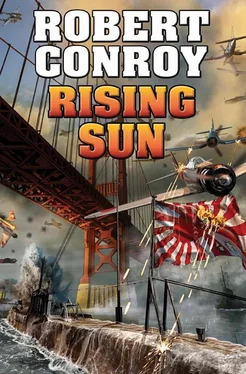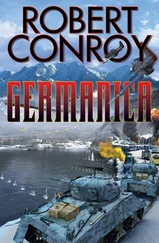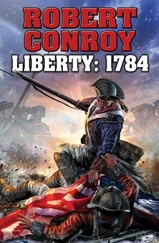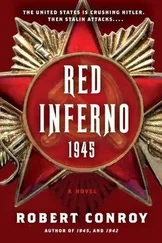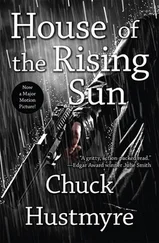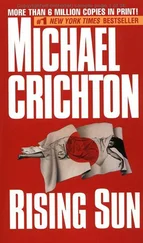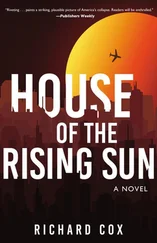Spruance sighed. “Radar will give us several hours warning of the approach of their surface fleet.”
Radar towers, like those that lined the English Channel, had been constructed on high ground overlooking the Baja, San Diego, Los Angeles, and other cities. They could spot ships and planes up to two hundred miles out. That would mean a number of hours for battleships, but less than an hour for airplanes.
“There will be chaos when the sirens sound,” Spruance said. “There still aren’t anywhere near enough bomb shelters, and I don’t know what can protect anyone against a fourteen-inch shell. People will literally try to run for the hills and there will be a stampede. People will die. God, I hope this is worth it. We will do everything we can, but we simply cannot let the Japs stop the attack on the decoys. We will not have enough ships and planes to halt them.”
“The Japs will probably focus on attacking military installations, but who knows where the shells will land. I know it’s futile, but I wish we hadn’t sent the Midway survivors, the cruisers and destroyers, to Pearl Harbor instead of here.”
Nimitz looked out a window where he could see the bay. Two heavy cruisers and four light ones, along with a handful of destroyers, were all that the navy possessed at San Diego. There were other ships in San Francisco and Puget Sound, but they would have been inadequate in the first place, and likely would have been sunk if they’d attempted to move them south to San Diego.
“We play the cards we were dealt,” Nimitz said grimly. “But if they actually do hit us here with all the planes that their carriers have, we are in trouble.”
“Then we’d better start shuffling planes down here from up north as soon as possible,” Spruance added.
“Are we ready for that?” Nimitz asked.
“Do we have a choice?”
Down the hall, Merchant asked Tim how it went. “I gave them my frank opinion and said that the Japs were going to hit us with everything, and including the kitchen sink. Only thing, I don’t think they quite believed it. Nimitz asked if I thought he was thinking too much like an American and not like a Jap. He told me not to answer that, so my career’s intact, although, if he’d pushed, that’s exactly what I would have said. Unless we start thinking like Yamamoto, he’s going to keep beating us.”
* * *
Lieutenant Harry Hogg, USAAF, had been called Piggy since the day he was born. Mom said he’d been a chubby baby and the name had stuck, even though Hogg was a slight and slender young man of twenty-three. When he was younger, he thought he’d like to kill dear old mom, but then realized that the nickname was inevitable given his last name.
Hogg stood by his twin-tailed P38 fighter and looked around at the Mexican terrain. The land was barren and rugged, but, somehow, engineers had managed to lay out a number of airfields scratched into the hard surfce of the earth. His landing had been scary as his plane used a lot of runway and this dirt field had all of about six inches leeway. Taking off was going to be a joy as well. He and the other P38 pilots were safe for the moment and damned glad to be down on mother Earth.
Some people he knew went on vacation to Mexico. This, however, was not going to be a vacation. An NCO had directed him to a series of tents where there were cots set up for the pilots and mechanics. There was food, and it was neither plentiful nor good. When asked how long they’d be at this abomination, Piggy and his fellow pilots were told they’d be there as long as the Army Air Force or the United States Navy said they should. That was another thing. Army and navy pilots were intermingled and more and more planes of all types were coming in, including P39, P40, and P47 army fighters and navy Wildcats. Hogg had seen many others fly overhead and on to other fields that were out of sight. Quietly, they were told they shouldn’t be in Mexico for more than a few days. Sure, they all thought. The word “soon” to the military could mean an eternity.
Everyone felt that something big was up, but nobody was quite certain what. There were what appeared to be a couple of carriers out in the bay, but they looked way too small, even misshapen.
Fuel had been brought in, but not all that much of it. To Piggy, this meant that the facility truly was temporary and that suited him just fine. It looked as if there was only enough fuel for two or three full flights of thirteen hundred miles each, which was the P38’s range. He’d only recently completed training and, while anxious to take on either the Germans or the Japanese, knew he was good but had doubts as to whether he was good enough to duel with an experienced enemy pilot. From what he and the others had heard about the Japanese, they flew their Zeros with consummate skill. Piggy loved his twin-tailed fighter and looked forward to using it against the enemy, just not any time real soon. Some of the twin-tailed planes had been stationed in Alaska, but they’d been withdrawn after the Midway debacle.
Senior officers quickly informed all the pilots that there would be no training or orientation flights. They wanted to minimize the chance that the planes would be seen by unfriendly eyes although, obviously, they might have been spotted flying in. Hogg and the other pilots all looked at each other. The need for secrecy meant that the Japs were coming and they were going to try and spring a trap on the dirty yellow bastards.
When asked if they would have some time to go into town, the pilots were informed that there was no town. They were also told not to drink any water that hadn’t been boiled or any food that had been cooked in local water. The same held true for the local booze. Montezuma’s Revenge was spelled out in great detail and Hogg decided he would take no chance on having a case of the raging shits while trapped in the cockpit of his plane. Even if he and the plane made it back, he was told that both would have to be hosed down.
A ragged cheer told him that the tent designated as the mess hall had opened for business. Piggy was a healthy young man and he hadn’t eaten since morning.
He entered the tent and grabbed a metal tray. “What’s today’s main course?” he asked one of his fellow pilots.
“Shit on a shingle. What else?”
* * *
“If I asked you to leave San Diego, would you?” Tim asked.
Amanda smiled tenderly and patted him on the cheek. “No.”
“I didn’t think you would.” They were seated on a park bench and had a view of the bay. It was almost empty of warships.
“And don’t even think of asking. I’m a nurse and I’ll stay here and do my duty just like you will.”
Tim thought there was a big difference between a naval officer and a civilian nurse, but prudently kept his opinion to himself.
She squeezed his hand. “The big battle’s going to come and very soon, isn’t it? And it’s going to take place around here, right?”
“That’s the rumor.”
“Tim, you know more than that.”
“Not really. A lot of people think that there will be fighting around here, and, yes, I’m one of them, which is why I had hoped you would consider leaving.”
“Well, I’m not going. Do you really think the Japs are going to target civilian areas and places like hospitals? I don’t think they did that when they attacked Pearl and Honolulu.”
“Civilians were killed, weren’t they? I seem to recall hiding in a shelter with a beautiful but frightened nurse while everything exploded around us.”
“I wasn’t frightened, I was terrified. But you’ll be here, too, won’t you?”
“No.”
“What?” she said. She was shocked. “Where are they sending you now?”
Tim took a deep breath. He’d hated the thought of telling her and had been putting it off. “Spruance is going to take over from Halsey. It seems that Bull has gotten another attack of his skin infection and, while it’s still mild, Nimitz can’t take the chance of his being incapacitated during the middle of a battle.”
Читать дальше
